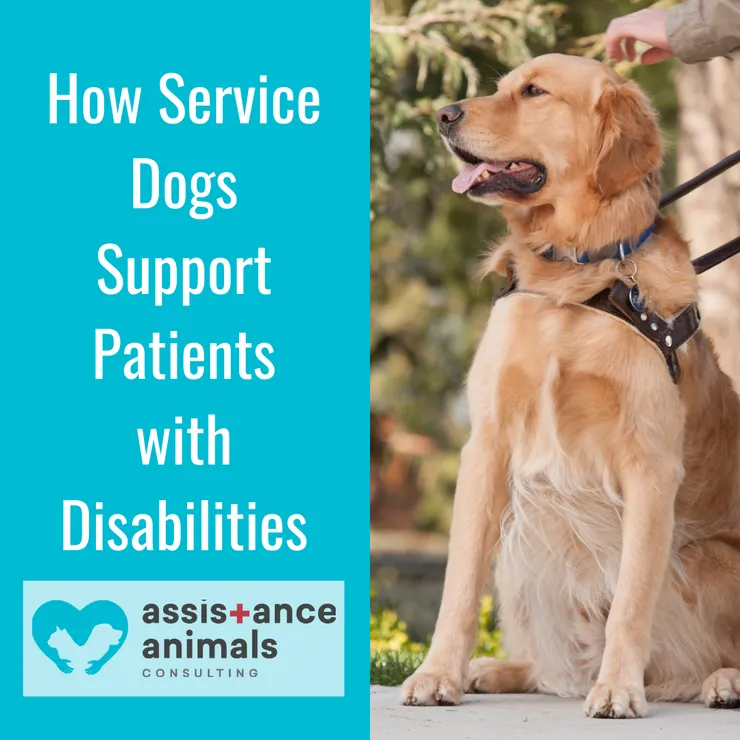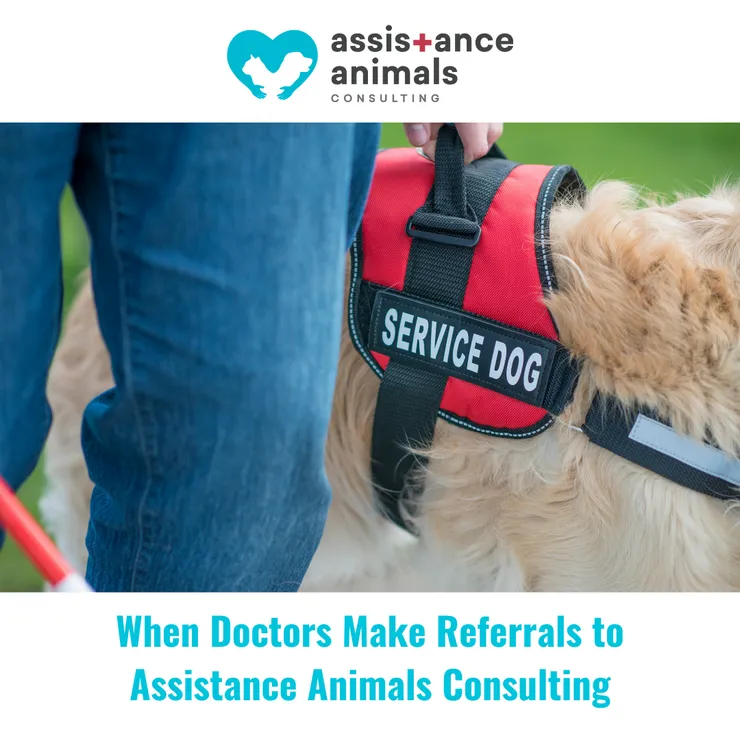Seizure Alert Dogs: Aiding in Epilepsy
Seizure Alert Dogs: Aiding in Epilepsy
“Seizure Response Dogs: Aiding in Epilepsy”
November 1 marks the beginning of National Epilepsy Awareness Month!
Epilepsy, sometimes called a seizure disorder, is a common disorder of the brain that causes repeated seizures. Seizures or episodes are the main sign of epilepsy. A person is diagnosed with epilepsy when they have had two or more episodes. Epilepsy can affect anyone with a brain, regardless of age, race, social class, or nationality. Over a lifetime, 1 in 10 people will have a seizure, and 1 in 26 will be diagnosed with epilepsy.
Assistance Animals Consulting wants to do our part to provide support and accommodations for those living with epilepsy. Today we want to spread awareness on how dogs can support individuals living with epilepsy.
Some individuals living with epilepsy may have or want to acquire a seizure alert or seizure response service dog. The American with Disabilities Act (ADA) defines a service dog as any dog that is individually trained to do work or perform tasks to benefit an individual with a disability. The dog must perform tasks directly related to the person’s disability.
Seizure Alert Dogs
Trained seizure alert service dogs demonstrate specific alerting behaviors such as pawing, circling or pacing, licking, or acting restlessly before a seizure. These behaviors indicate the dog can alert its handler to an impending attack before it begins. Research shows some dogs have a natural or innate ability to alert. Research has not consistently demonstrated the ability to train a dog for alerting behaviors. Many scientific journals on seizure alert dogs indicate further research is needed.
Alerting to an impending seizure is an innate ability in some dogs. It’s speculated that the human body gives off a unique scent during an episode, although it’s still unknown exactly how a dog can detect this. However, a recent study has shown some preliminary evidence dogs can recognize an odor specific to epileptic seizures in humans.
Seizure Response Dogs
A seizure response dog is trained to perform specific behaviors during or after a seizure. These specific behaviors include finding someone to help, retrieving a phone, or stimulating a person during an episode, retrieve medications or food, act as a brace to help them up, and provide comfort.
Seizure alert dogs and seizure response dogs are not the same.
But you should be aware of what current research indicates. As a matter of fact, there is no consistent scientific evidence proving that dogs can alert or respond to epileptic seizures. Further research must be conducted to better understand the factors that determine a dog’s suitability and reliability. For example, what’s behind the mechanisms of those alerts and the nature of the outcomes of using dogs in the context of epilepsy?
Currently, more dogs should likely be trained to be seizure response dogs versus seizure alert dogs. Regardless of the type of seizure support dog of interest to you, not all dogs will have the natural qualities to be a useful service dog for seizure support. With any service dog, the right temperament makes all the difference. All service dogs should have these essential qualities, calm, gentle, and very well trained in basic obedience.
At Assistance Animals Consulting, we are your veterinary partners. We understand animal-assisted health care, and we prioritize the health and welfare of both the humans and animals involved in this type of health care program. Due to the wide variety of factors involved in determining how a dog can assist individuals with epilepsy, we will need to speak to you and your neurologist to gain a complete understanding of your seizures. That conversation allows us to create a more effective human-animal bond treatment strategy, guide you to the most appropriate dog trainers for your specific needs, and set realistic expectations for the type of assistance a dog can provide. Ultimately, this helps for better overall outcomes for all parties involved.
Service dogs are invaluable partners for individuals living with disabilities. They can give individuals living with epilepsy more significant independence, which improves their overall quality of life. Learn more about epilepsy and be prepared to respond to seizures safely and appropriately by learning more about episode first aid and safety.











